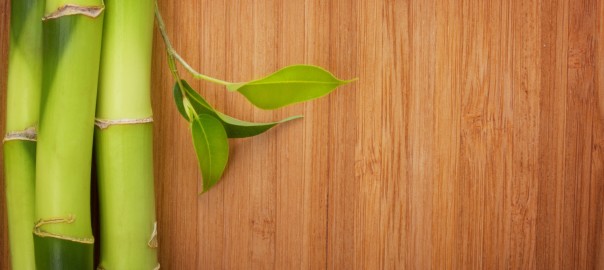As building technology improves, we’re all becoming better at recognising harmful materials. But that doesn’t mean they’re eliminated entirely. Even now, building and home improvement specialists are learning of new potentially toxic materials and substances that have found their way into common flooring and household products.
That’s why it’s important to know what materials form your flooring, and how to avoid potentially toxic flooring options. There are a lot of misconceptions surrounding artificial flooring products, but with advances in technology, certain engineered flooring products are some of the least toxic options available.
Here are a few safe bets if you want the best non toxic flooring in Australia.
Non-toxic flooring Australia—table of contents
Non toxic flooring is plentiful in Australia and includes hardwood, laminate, bamboo, and more.
- Hardwood
- Polished concrete
- Laminate flooring
- Bamboo flooring
- Vinyl flooring
- Carpets
- Gym flooring
- Is rubber flooring toxic?
- Is hybrid flooring toxic?
Hardwood flooring

Hardwood flooring is completely non-toxic, which makes it 100% safe
Solid hardwood flooring is made from individual planks of wood milled directly from trees, which makes it one of the safest and least toxic flooring options you can buy. Toxicity tends to come from chemicals that are used in the manufacturing process, as well as chemicals that are a natural part of the material. So because wooden planks are milled directly from trees, it’s the “cleanest” type of flooring out there. You’ll pay a pretty price for solid hardwood flooring though, and it’s a little more work to maintain.
Polished concrete
Polished concrete is also completely non-toxic, making it one of the safest types of flooring
Polished concrete is usually associated with large stores like Bunnings or IKEA, but it can look beautiful in a home. Like hardwood, it’s also completely non-toxic with a zero VOC rating, so is a great option if you’re happy with a more modern and “industrial” look.
Non-toxic laminate flooring
Some types of laminate flooring can be safe and non-toxic, but you’ll need to research
Is there such a thing as non-toxic laminate flooring? Yes! Laminate flooring is artificially constructed from products such as melamine, resin, and fibre board, manufactured with chemicals. Fortunately, chemical technology has improved significantly, resulting in a non-toxic form of laminate flooring. Toxins are rarely noticeable by smell or appearance though, so recognising non-toxic laminate flooring can be tricky. Picking non-toxic laminate flooring requires research, and some expert help.
Asking a few questions before you settle on a variety of laminate flooring can help you to determine whether it’s completely non-toxic. Ask about where it came from, and ask about its composition. You should also look into the manufacturer’s track record when it comes to chemical safety. It is also helpful that you opt for chemical-free installation methods, such as floating floors, to keep your flooring as non-toxic as possible.
Non-toxic bamboo flooring
Bamboo flooring is similar to laminate—it can be safe, but you’ll need to look at each product individually
Non toxic bamboo flooring is a lot like laminate flooring, in the sense that it requires adhesives to bind its fibres and turn it into an appropriate flooring material. And just like laminate, the resins or adhesives that are used will determine whether it’s non toxic or not. Luckily, bamboo flooring is among the more modern flooring options on the market, dedicated to being an ecologically friendly choice (for the most part). That means fewer chemicals, and a lower carbon footprint during the manufacturing process. Generally, if it’s safe for the environment then there’s a high chance it’s non toxic, and that’s the case in most bamboo flooring products. Again, research is important, but you can usually be confident that bamboo flooring is a safe and non toxic flooring option.
Non-toxic vinyl flooring
Vinyl is not generally a good choice for toxicity
The chemical process of leaching is what creates toxic flooring products. When chemicals leach into the flooring material during the manufacturing process, they can cause issues later in the material’s life. Vinyl is more resistant to leaching during manufacture than a lot of other flooring products, however, it can contain a high number of toxic chemicals that can “gas off” after being installed. This may be especially harmful for children1. But not all vinyl flooring is the same, and you can find some low toxic types on the market. So if you’re considering vinyl flooring, be absolutely sure to buy a product that has a proven low VOC.
Vinyl flooring also comes in a wide range of hybrid configurations, which means that you can select options based on their appearance and their suitability for your home.
Non-toxic carpets
Non-toxic carpets are one of the best flooring options for those who are sensitive to chemical products in building materials. You can select carpets that are hypoallergenic, or ones that rely more heavily on natural fibres than synthetic ones. The carpet manufacturing process also varies, which means you have the option of carpets that rely on fewer harsh chemicals during the production stage. The same applies for installation, too, given the various installation options available to you. The availability of carpet adhesives means that you won’t be stuck for options and you can shop around until you find one that suits your need for low toxicity.
Non-toxic gym flooring
If you’re looking to install some non-toxic gym flooring in your home, there’s a single option that is best: rubber. This material gives you the foot grip you need to do your workouts safely and is also easy to clean with vacuum cleaners and mops.
Not all rubber is equal though. You’ll need to look for a variety that has a low VOC (volatile organic compound) rating such as vulcanised rubber, virgin rubber, rubber without any added PVC, or rubber mixed with cork. This is especially important for gym flooring because many workouts require you to lay down and get extremely close to the material, which can give off toxic gases. Provided you buy rubber flooring with a low VOC, you’ll be in good stead.
Is rubber flooring toxic?
Is rubber flooring toxic? As mentioned above, certain types of rubber flooring can be toxic, releasing gases like xylene, hydroxytoluene, ethylbenzene, toluene, formaldehyde, and acetaldehyde. This is especially true of recycled rubber, so you’ll need to pay attention to the VOC content if considering rubber flooring. The lower VOC content, the less toxic the flooring.
Is hybrid flooring toxic?
Hybrid flooring is usually a mixture of either thin wooden planks or laminate, and a vinyl base. The wood or laminate isn’t usually toxic, but the plastic vinyl that forms the base may be. As usual, the best way to tell whether a particular hybrid flooring is toxic is to look at its VOC rating, as well as the emission class (M1 is good).
Non-toxic flooring Australia—summary
As you can see, there’s lots of non (or low) toxic flooring options in Australia. The safest are hardwood and polished concrete, but you can also find low toxic flooring in bamboo, carpet, and even plastic vinyl. You just need to check the VOC rating before you buy. Good luck!
Reference:
George Citroner, 2019, Lung Damage From Household Cleaning Products, Healthline





